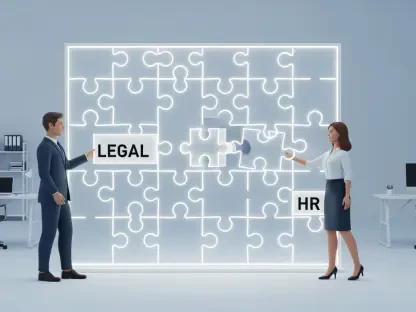In the high-stakes world of professional soccer, a gripping legal battle unfolds as Nigerian forward Ademola Lookman challenges his club, Atalanta, in Italy’s Serie A, over a potential transfer to domestic rival Inter Milan. This dispute, centered on an alleged broken promise regarding his departure this summer, captures a pivotal moment in the sport. The clash not only jeopardizes Lookman’s career trajectory but also spotlights a growing tension between player rights and club control. With millions in transfer fees and competitive balance at stake, this case raises critical questions about how much freedom athletes truly have in shaping their futures within the rigid structures of soccer contracts.
This evolving conflict underscores the rising importance of player autonomy in today’s soccer landscape, where contractual disputes increasingly define careers and alter club dynamics. As players push back against restrictive terms, the balance of power in the sport is being tested. The focus here narrows to Lookman’s situation, the legal arguments surrounding “just cause” termination under FIFA regulations, and the wider implications for player rights in contract negotiations across the global game.
The Rise of Player Autonomy in Soccer
Evolving Legal Frameworks and Player Rights
Player autonomy has emerged as a central theme in professional soccer, driven by shifting legal frameworks that prioritize athletes’ rights over traditional club dominance. In Italy, for instance, employment law plays a significant role, with Article 26 of Legislative Decree Number 36/21 explicitly banning non-compete clauses that limit professional freedom during or after a contract. This legal protection reflects a broader movement to ensure players are not unduly constrained by club policies, fostering an environment where career mobility is safeguarded.
Beyond national laws, FIFA regulations also support this trend by allowing contract terminations under specific conditions, such as “just cause,” when clubs engage in unfair practices. Recent studies indicate a noticeable uptick in disputes globally, with more players challenging restrictive transfer terms over the past few years. This growing wave of legal actions suggests that the sport is moving toward a model where contractual fairness is non-negotiable, empowering athletes to take control of their professional paths.
The momentum behind these changes highlights a cultural shift within soccer, as governing bodies and legal systems adapt to modern demands for equity. While clubs once held near-absolute sway over player movements, the current landscape shows a gradual erosion of such control. This evolution, though promising for players, also introduces complexities as the sport grapples with balancing individual rights against collective interests.
Real-World Cases Shaping the Trend
Ademola Lookman’s ongoing dispute with Atalanta offers a compelling case study in the fight for player autonomy. The forward claims that an agreement made last summer guaranteed his transfer this year, a promise allegedly broken after a rejected move to Paris Saint-Germain. His desire to join Inter Milan has been met with resistance from Atalanta, which reportedly insists the agreement only permits overseas transfers, a condition Lookman disputes as overly restrictive.
This limitation on domestic moves could be interpreted as a non-compete clause, potentially violating Italian employment law. If proven, such a restriction would contravene the principles of professional freedom enshrined in national legislation, giving Lookman a strong argument for contract termination. The situation illustrates how contractual disagreements can stall a player’s career while exposing deeper flaws in transfer agreements that fail to prioritize athlete agency.
Other notable cases further illuminate this trend, as players increasingly invoke FIFA’s “just cause” provisions to exit unfair contracts. Instances of clubs withholding promised transfers or imposing unreasonable conditions have led to successful terminations, setting precedents that embolden athletes to challenge restrictive terms. These real-world examples underscore a growing willingness among players to leverage legal tools, reshaping how power is distributed in soccer’s contractual ecosystem.
Legal Insights on Contractual Freedom
Expert analysis from Italian employment lawyer Michele La Francesca provides critical insight into Lookman’s predicament with Atalanta. La Francesca argues that the club’s interpretation of the transfer agreement—limiting moves to overseas destinations—may be null and void under Italian law due to its restrictive nature. This perspective positions Lookman as potentially justified in seeking contract termination, highlighting a significant breach of employment principles.
Delving deeper, La Francesca emphasizes that both parties acknowledge a transfer agreement existed, but the dispute hinges on its specific terms. If Lookman’s claim—that the deal allowed a transfer for a fixed fee regardless of destination—holds true, it aligns with FIFA regulations permitting termination for “just cause” in cases of club misconduct. This legal stance strengthens the argument for player rights, suggesting that Atalanta’s actions could be deemed an infringement on professional liberty.
The broader tension between club control and career mobility comes into sharp focus through this analysis. La Francesca’s viewpoint reflects a growing consensus in sports law that prioritizes a player’s right to choose their path over club-imposed barriers. This legal debate not only impacts Lookman but also serves as a litmus test for how future disputes might be resolved, reinforcing the trend toward greater autonomy in soccer contracts.
Future Implications for Soccer Contracts
Lookman’s case could serve as a catalyst for reshaping transfer agreements in Italian soccer and beyond, prompting clubs to rethink how contracts are structured. If his legal challenge succeeds, it may lead to stricter scrutiny of clauses that limit player movement, encouraging more transparent and equitable terms. Such an outcome would likely embolden other athletes to contest unfair restrictions, further tipping the scales in favor of individual rights.
On the flip side, clubs might respond by adopting more rigid negotiation tactics to protect their competitive interests, potentially complicating transfer markets. While stronger legal protections for players are a clear benefit, the risk of increased litigation looms large if disputes over contract terms remain unresolved. This duality presents a challenge for the sport, as stakeholders must navigate the fine line between safeguarding player freedom and maintaining club stability.
The broader impact on soccer could be profound, with power dynamics between players and clubs undergoing a significant shift. As legal precedents emerge from cases like Lookman’s, the sport may see a surge in contract disputes, forcing governing bodies to clarify regulations and mediate conflicts. This evolving landscape suggests that the push for autonomy will continue to influence how the game operates, reshaping relationships at every level of professional soccer.
Balancing Rights and Interests
Looking back, Ademola Lookman’s legal struggle with Atalanta captured a defining moment in the quest for player autonomy, spotlighting the intricate interplay of sports and employment law. The arguments surrounding “just cause” termination under FIFA regulations, coupled with Italian legal protections against restrictive clauses, framed a pivotal debate on contractual fairness. This case stood as a powerful reminder of the significance of safeguarding professional freedom in soccer.
Reflecting on the broader implications, it became clear that addressing these disputes required a nuanced approach to balance player rights with club interests. Stakeholders were urged to collaborate on crafting clearer contract guidelines that prevent such conflicts from escalating. Establishing mediation frameworks or revising FIFA policies could have offered a proactive solution to reduce litigation risks.
As the soccer community moved forward, the focus shifted to fostering dialogue between players, clubs, and legal experts to build a more equitable system. Monitoring how legal precedents from disputes like Lookman’s influenced contract structures emerged as a critical next step. This ongoing evolution promised to redefine the sport, ensuring that the pursuit of fairness remained at the heart of professional soccer’s future.









